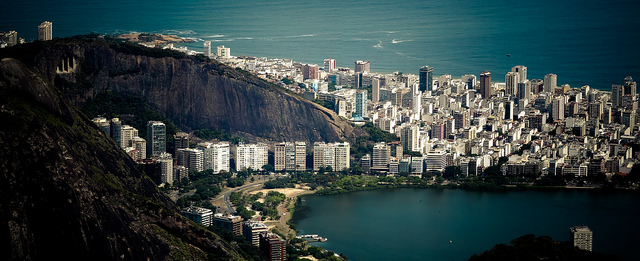
Our Business Brazilian Portuguese course was released yesterday, and in celebration we’re taking a look at what makes Brazil such a hot spot for businesses these days.
Brazil’s economy has gone through its share of ups and downs lately, but it remains one of the world’s key markets and an essential one to understand and penetrate whether your business is an established multinational or brash start-up. While you’ll come across your share of fluent English-speakers in corporate Brazil, they and your other counterparts will appreciate any and all efforts to speak their native tongue.
1) GDP – Brazil is the ninth largest economy in the world.
2) PPP – Brazil is the seventh largest economy by purchasing power parity.
3) FDI – Foreign Direct Investment in December 2015 in Brazil reached $15.2 billion making it the Latin America’s largest recipient of foreign direct investment and the fifth in the world.
4) Consumers – Brazil has a domestic market of over 200 million inhabitants.
5) Diversified industries – While Brazil has become famous and in some circles criticized for its reliance on commodities, it also does boast a plethora of other huge industries, from autos, to aerospace, to textiles, as well as an active service sector spanning from banks to for-profit education providers.
6) Social Media – In 2013, the Wall Street Journal wrote that Brazil was the “social media capital of the universe.” Roughly 8 out of every 10 Brazilian Internet users are on Facebook, which counts over 99 million active users in Brazil. The country is also the world’s second-largest user of the Waze, a crowd-sourced traffic and navigation app.
7) Raw materials – Brazil is one of the world’s largest producers of iron ore and is rapidly becoming an energy superpower, with several high-potential offshore oil fields discovered in recent years.
8) Agriculture – Brazil is the world’s largest producer of soybeans, coffee and sugar cane. It’s also a major exporter of beef and orange juice.
9) BM&F BOVESPA – Brazil’s stock exchange, located in the country’s economic capital of Sao Paulo, is Latin America’s largest, with a market capitalization of $1.63 trillion.
10) Alternative energy – Close to 80 percent of Brazilian electricity is produced by hydropower, the largest percentage in the world. Thanks to the country’s enormous sugarcane crop, it’s also one of the world’s largest producers of ethanol, which fuels as many of half of the cars on the country’s roads.
All of the above shows that no matter which company or sector you work for, you’ll probably end up having some dealings with Brazil. So take advantage of learning the language with Business Brazilian Portuguese, aproveite!
Photo credit: Ipanema by Babak Fakhamzadeh via Flickr licensed under CC 2.0